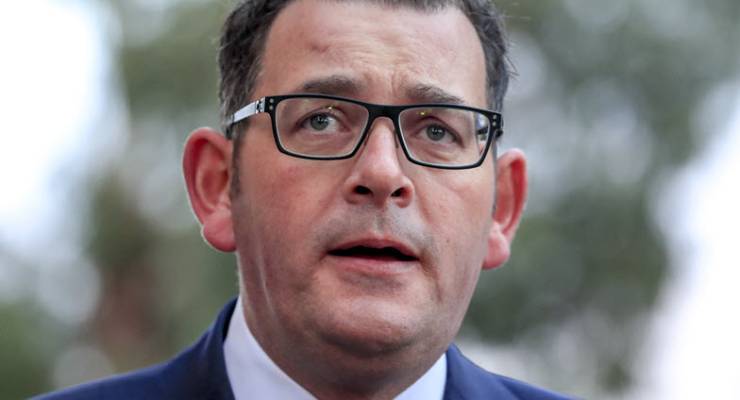
The November 24 Victorian state election is just around the corner and, beyond the main players, a bevy of new micro-parties have registered and are planning on fielding candidates throughout the state. This phenomenon reflects the past two federal elections, in which micro-parties have grabbed both seats and power.
But can this federal trend take off in Victoria?
In 2014, 11 parties challenged for seats in state parliament, including Animal Justice Party, Australian Christians and Australian Sex Party (since renamed Fiona Patten’s Reason Party), but that number has since shot up to 22 for the next election, and could yet increase. These new players — like the Health Party Australia, Sustainable Australia, Voluntary Euthanasia Party, and The Flux Party Victoria — are mostly concerned with single issues.
A report from The Grattan Institute states that, “Minor party voters have less trust in government than those who vote for the majors. And outsider parties have tapped into these concerns with their promises to ‘keep the bastards honest’ and to ‘drain the swamp’.”
Transport Matters Party was registered eight months ago and was created to fight the state government’s decision to regulate the taxi industry following the blitz from Uber. But co-founder and hire-car driver Rod Barton says the party has a general pro-public transport stance that it believes will appeal to voters.
“We’re growing in excess of 140,000 people a year, we can’t just keep widening freeways and taking out level crossings, we have to find a way to get people using public transport. We’re spending money on infrastructure but not on getting people off the roads.”
Barton plans to tap into the industry’s strong migrant background by fielding candidates across Melbourne’s booming and multicultural south-east corridor, including Cranbourne, Rowville, Narre Warren North, Narre Warren South, and Frankston.
“People will probably see us as a protest party but we think we have the potential to win some seats and influence some decisions,” Barton said. “We’re a grassroots organisation and I think we represent a broad range of society.”
Nick Economou, senior lecturer in politics at Monash University, says that micro-parties traditionally challenge in the upper house, which, like the Senate, works on proportional representation and is much easier to crack than the lower house. But success still depends on preferences deals, which will be revealed when all candidates submit their how-to-vote cards by November 16.
He adds that the opportunity for voters to lodge a protest vote in the upper house is the main reason for micro-party support.
“If the opportunity is there, some people will take it and you can use your vote to indicate that you’re unhappy with the major parties. If you’re someone who has really firm, ideological views on something, you can find a party in the upper house that resonates with you.
“If Victorian voters copy what’s happened federally, then they’ll support major parties in the lower house and support smaller parties and independents in the upper house.”
But the political climate in Victoria is quite different to what’s happening federally.
The chaos of federal politics — with the rotation of prime ministers clearly exhausting voters — is reflected in the 10 micro-parties that have infiltrated the Senate since 2010: Liberal Democrats, Australian Motoring Enthusiast Party, Democratic Labour Party, Australian Sports Party, One Nation, Palmer United Party, Derryn Hinch’s Justice Party, Nick Xenophon Team, Family First and Jacqui Lambie Network.
In Victoria, that discord is at a much lower volume. Premier Daniel Andrews has led the Labor Party since 2010 and has provided much-needed stability. Likewise, Opposition Leader Matthew Guy has held his role since 2014. During the last state election, in 2014, only four micro-parties managed to break through into parliament.
Other than a protest vote, the main role that micro-parties play is in highlighting single issues, even though it’s the more generalist parties that get the greater share of votes.
Crucially, micro-parties have been tested at the federal level yielding mixed results, including in-fighting that leads members to leave parties and either create new parties, become independents, or join other major parties. Sometimes the members subsequently give rather bizarre speeches and make demands in exchange for government support for certain bills, all of which may impact voters willingness to experiment with their vote.
In a recent poll, the Reason Party’s support seems to have collapsed, currently polling at less than 1%.
Barton isn’t concerned about his party’s chances though: “People are pretty fed up with the routine of politicians and they’re looking for something alternative; we think there are going to be a few people who get in and might upset things for a bit for the major parties.”








The collapse of the Reason Party’s vote is attributable to one thing, and one thing only…..the absolute insanity of changing their name from the well recognised and widely liked ‘Sex Party’, to a name that means almost nothing to anybody. ‘Sex Party’ shone out on the ballot paper – Reason party just gets lost in the rest of the dross.
It’s extremely sad because I’ve known Fiona Patten personally for many years, and she’s been an outstanding advocate for causes that were long swept under the political carpet. We can only hope that their impending wipeout in the Victorian election convinces them of the need to revert to their old name in time for the Federal election. Otherwise Fiona is destined for the dustbin of political history, and that would be very sad indeed.
Agree about the loss of visibility re the name change of the Sex Party and it would be a sad thing indeed were Ms Patten to lose.
I had the opportunity to meet her at the MardiGrass festival in Nimbin in 2016 and she was very impressive, answering questions lucidly and not afraid to take stands at odds with a questioner.
That unique creature, an intelligent, apparently honest politician.
On the one hand I wonder if Evil Brian’s explanation regarding the demise ‘Reason Party’ isn’t a clue to State politics generally. Apparently no one looked at the web site (including me) assuming that one is in existence – or did any research at all. On the other hand the author doped the ball with the promising comment “But the political climate in Victoria is quite different to what’s happening federally” and then failed to develop
the point, which, I would have thought, was the point of the article (at least given the headline).
As to transport well Australia has adopted the Yankee model. All cars (and petroleum products) and no coherent public transport. Traveling around in Europe is easly; even in rural France or Germany or Spain. Even ‘bla bla car’ (look it up) is a functional alternative.
I have only visited Melbourne and surrounds on a handful of occasions. This article taught me nothing in regard to the forthcoming election (that I expect Labor to retain). Zero value from the subscription.